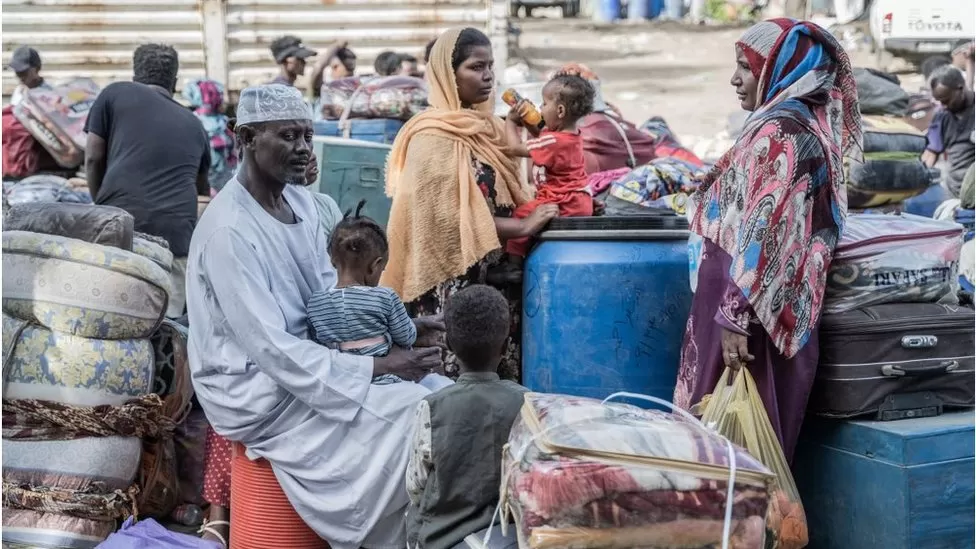After nearly a week of talks, Sudan’s warring parties have signed a deal to alleviate the suffering of the civilian population, but have made little progress towards peace.
This is a first step to providing relief for trapped civilians.
They agreed to allow safe passage for people leaving battle zones, protect relief workers and not to use civilians as human shields.
However, they did not agree to pause the fighting.
There are reports of more air strikes and shelling in the capital, Khartoum on Friday.
The talks have been mediated by the US and Saudi Arabia, the host country.
US officials said they were cautiously hopeful there was momentum now for the safe delivery of relief supplies, as both sides committed to let in badly needed humanitarian assistance after looting and attacks that targeted aid.
However, the conflicting parties are still quite far apart when it comes to brokering peace, the US said.
They are still discussing a proposal for a truce and a mechanism to monitor it.
Meanwhile Saudi Arabia said there is still more work to be done, according to Arab News: “Other steps will follow, and the most important thing is to adhere to what was agreed upon.”
Not everyone is happy about the new deal, with some Sudanese saying it falls short of what they expect: “I’m really incredibly disheartened,” Professor Nisrin Elamin from Toronto University told the BBC’s Newsday programme.
“Ceasefires that they have agreed to in the past have not held. I don’t understand why we would ever take them by their word. To me this is really just another closed door negotiations with no civilian actor,” Professor Elamin added, saying that she still has family who are stuck in Khartoum surrounded by conflict.
The BBC has heard several accounts of people trapped in Khartoum, who have been witness to loud explosions, gunshots and all-out violence.
The conflict erupted in mid-April when the paramilitary Rapid Support Forces (RSF) refused to be integrated into Sudan’s army under a planned transition to civilian rule.
Since then, the death toll has risen to more than 600 according to the WHO, and thousands of people have been forced to flee their homes.
